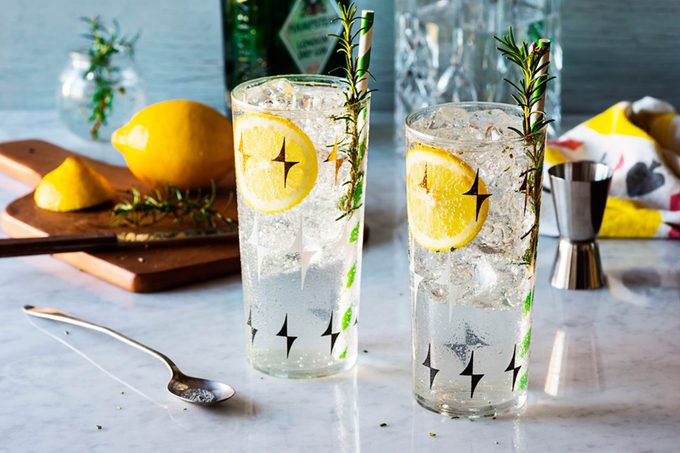Sorry, But Seltzer Isn’t as Healthy as It Claims to Be
Updated: Apr. 30, 2021
That lovely soda substitute seltzer seems like the perfect solution for hot summer days. But there's a catch you need to know about.
Avid seltzer drinker? Good for you—seltzer is an excellent cola substitute, being sugar- and calorie-free. (By the way, you do know the difference between club soda and seltzer, don’t you?) However, it does come with one drawback: Some research suggests that seltzer weakens your tooth enamel.
Does this mean you should completely ax seltzer from your diet to protect your pearly whites? How much seltzer do you need to drink for it to do significant dental damage? We consulted with two dentists to find out if too much seltzer is bad for you.
So how is seltzer different from regular water? Carbonated water gets its bubbles from carbon dioxide (CO2), and a chemical reaction in your mouth turns the CO2 into carbonic acid, according to Kevin Sands, DDS, a Beverly Hills, CA-based cosmetic dentist. This gives seltzer its distinctive tangy taste, but also makes it more acidic, which can erode enamel, says Sands. (Are you brushing properly? Here are 8 toothbrushing mistakes you could be making.)

Any drink with carbonation has a higher acid level, says the American Dental Association (ADA). However, sparkling water is only slightly more acid than plain tap water, the ADA notes. There are plenty of more acidic things you could be drinking, such as the cola drinks you gave up (diet and regular), and even fruit juice. Sands says there’s no reason to avoid seltzer—just alternate it with regular water to help protect your teeth. Or drink seltzer with your meals and plain water in-between. (And stay well-hydrated—here are the signs you’re dehydrated.)
According to Frederick Baker, DDS, a Parsippany, NJ-based dentist, if you’re curious about a certain brand of seltzer or club soda (which also contains CO2), check out its pH range. The pH scale ranges from 1 to 14: 7 is neutral; the higher the acid content, the lower the pH, says Baker. Waters that have added fruit flavor like lime or lemon will be even more acidic—maybe around 3 to 4, says Baker. “Over time, this can cause damage to the enamel of your teeth which is the number-one line of defense against cavity formation. The more neutral or basic the pH is, the better it is for your dental health.” Plus, brands with added sugar can boost your risk for developing cavities, ADA says. If you want to take the guesswork out of it, see which sparkling water won our taste test.
For example, he says, a drink like Pellegrino water naturally has a more neutral to basic pH. “As a consumer, you can check the pH of your sparkling water drinks with pH papers to ensure you are drinking the least damaging water.” The natural sparkling waters will be lower acidity, he says. “And if you can’t live without seltzer or club soda, I would follow it up with a tall glass of plain H2O to flush the mouth of any residue left behind.” Sparkling or not, here’s how much water you should really be drinking in a given day.
Every product is independently selected by our editors. If you buy something through our links, we may earn an affiliate commission.
